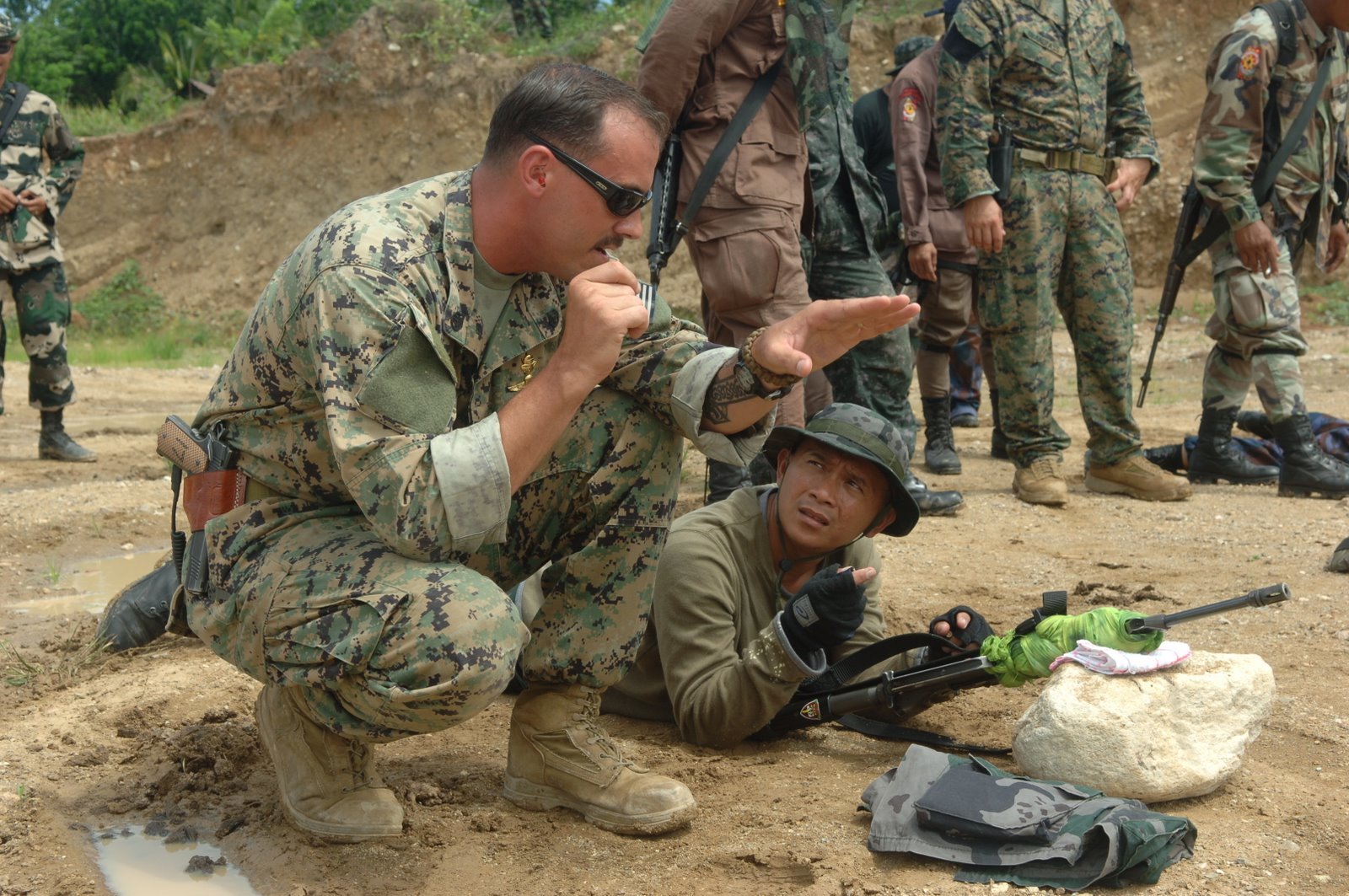
The decreasing threat from al Qaeda-linked terror groups in the Philippines has prompted Pentagon leaders to shutter one of the U.S. military’s long-running counterterrorism operations, but will maintain a sizable special operations force (SOF) in country for the foreseeable future.
Pentagon spokesman Col. Steve Warren confirmed recent reports on the department’s decision to wrap up counterterror ops led by Joint Special Operations Task Force – Philippines on Wednesday. Philippine Defense Secretary Voltaire Gazmin said Manila was notified of the U.S. move and expressed confidence that Filipino forces could deal with any lingering threat from Muslim extremists in the south, according to recent reports.
However, a DOD official told USNI News that U.S. counterterror mission in the Philippines was not over, and military personnel assigned to the now defunct task force would remain in country.
The official characterized the decision to terminate the task force, based in the southern Philippines, as a “transition” of the American mission rather than “ending the mission” in the Asian nation.
“They will be there in the future . . . [They] aren’t going away” the official said, regarding future of the task force’s personnel in the Philippines. How those forces will transition from the task force to its next mission is still under debate by special operations commanders at Pacific Command and at the Pentagon, the official said.
One likely scenario would be an expansion of that advise and assist mission to other parts of the Philippines, in response to potential terror threats. On Wednesday, Warren declined to comment as to where the roughly 400 special operations forces personnel attached to the task force, largely consisting of Navy SEALs and Marines, would be redeployed to or what their new mission would be.
The official noted that the decision to end the task force mission was likely prompted by a recent peace pact between the Philippine government and top leaders with the Moro Islamic Liberation Front (MILF).
Philippine President Benigno Aquino and the group’s leadership agreed to the peace pact in March, setting the stage for the task force’s reassignment.
The decision on the task force also comes shortly after Washington and Manila inked a landmark defense pact to re-open key military bases to U.S. forces for the first time since the 1990s.
The defense deal, officially known as the Enhanced Defense Cooperation Agreement (EDCA), was made official during President Obama’s visit in April.
Terms of the deal will allow U.S. forces to return to Clark Air Force Base and the naval base in Subic Bay. No American forces have been based at either location since DOD officially shuttered the facilities in 1991 and 1992, respectively.
A spokesman at PACOM had yet to respond to queries by USNI News on the future of the American-led counterterrorism mission in the Philippines.
Created a year after the Sept. 11, 2001 attacks, the task force’s primary mission was to assist Manila in its efforts to quash the al Qaeda-linked Abu Sayyaf and MILF terror groups, which had established a foothold in the southern provinces of the Philippines, as well as the Indonesian-based Jemaah Islamiyah.
At the time U.S. intelligence had uncovered links between Abu Sayyaf militants and al Qaeda operatives involved in the Sept. 11 attacks.
With the Pentagon’s announcement of the task force’s closure, it officially ends one of the longest-running, U.S.-led counterterrorism campaign of the post 9/11 era.





